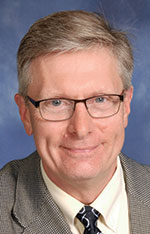Corrections Ministries / Deacon John Cord
Treating opioid use disorder, the challenges it presents
 It seems like I am constantly working with people who are struggling with opioid use disorder (OUD).
It seems like I am constantly working with people who are struggling with opioid use disorder (OUD).
Many people who have spent time in jail and prison are addicted to opioids. These addictions create many issues that eventually lead to incarceration.
Addiction to opioids usually starts very innocently. Some people are prescribed drugs like oxycodone (OxyContin), hydrocodone (Vicodin), codeine, morphine and synthetic opioids, including fentanyl, methadone, pethidine and tramadol.
However, some people’s body may create a dependency on these drugs much easier than others. Once the prescription runs out, these people experience cravings that may be uncontrollable. This can lead to needing to find opioids any way they can. As you can imagine, many eventually turn to illegal activities to find the drugs their body craves.
I used to innocently believe that an opioid-addicted person could simply overcome these cravings by going to 12-step programs like Narcotics Anonymous. However, this may not be a total solution for many people. The urges may be too powerful and the withdrawals too severe.
A couple of years ago, I heard a talk by a doctor who specializes in helping people with OUD. He explained that shear willpower may not be enough for many people. His treatment program included prescribing drugs to curb the cravings. He also encourages his patients to seek a good mental health counselor and to also join a Narcotics Anonymous group. With such a holistic approach, he has found that most people can control their OUD successfully.
The drugs used for OUD treatment need to be given under the supervision of a trained medical professional. The drugs that are approved by the U.S. Food and Drug Administration are categorized as medically assisted treatment (MAT) drugs. Some of these drugs have been in use for decades, while others have been developed more recently. Both the older drugs and the newer ones have a place in a person’s treatment.
However, there is one big problem: these drugs are very expensive. A person without proper insurance coverage can pay more than $550 per month for their prescriptions.
Many people who are addicted are also living in poverty. It becomes prohibitive when a person has to decide if they can purchase their MAT prescription, pay the rent or buy food for their family.
Indiana does not have a good solution for this problem. We are leaving these people to fend for themselves. So, these folks are sometimes forced to make decisions which could land them in jail. If they can’t afford the MAT drugs, they usually go back to illegal opioids to stem their cravings. Or they steal to get the money to purchase food and drugs.
Once a person is addicted to opioids, the problem becomes lifelong. They may have to take MAT drugs and continue counseling or be involved in a 12-step program for life.
Opioid use disorder is a real disease that affects both the mind and the body. We need to encourage our legislators to help support our brothers and sisters. We also need research to find pain medications that are not addictive. Hopefully, someday opioid use will be a thing of the past.
(Deacon John Cord is the coordinator of Corrections Ministry for the archdiocese. For more information on supporting the office’s re-entry ministry, contact Deacon Cord at 317-432-6604 or e-mail jcord@archindy.org.) †
 It seems like I am constantly working with people who are struggling with opioid use disorder (OUD).
It seems like I am constantly working with people who are struggling with opioid use disorder (OUD).